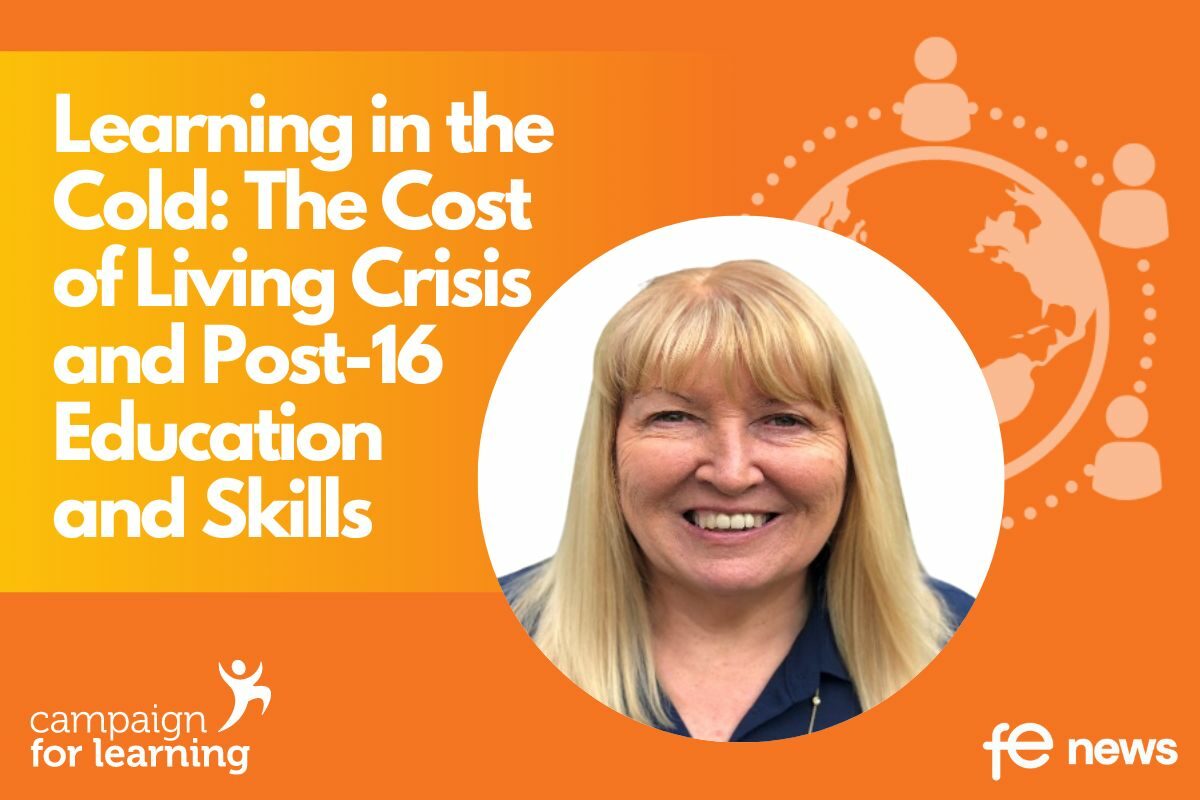The Cost-of-Living Crisis and Adult Education Providers

Adult education is one of the solutions in improving productivity and supporting social justice.
Traditionally, adult education has grown in importance in periods of recession and industrial change. It has been there to help adults get back to work through training and retraining, improving their basic skills and providing wellbeing support. And it has also been used to encourage integration and help communities rebuild after local disasters.
From the Covid Crisis to the Cost-of-Living Crisis
Throughout Covid adult education went online, while at the same time it was kept open for vulnerable adults and for those who had no connectivity at home and therefore couldn’t learn online.
This year, the adult education sector has worked hard to give confidence to those who still felt vulnerable from the pandemic and has quietly been building back participation numbers.
Today, however, there is now another issue for learners and prospective learners to manage: how can adults, households and families prioritise learning – even if course costs are fully funded or there are no up-front fees – when they are caught in a cost-of-living crisis?
It is difficult to think about learning when adults are scared about paying energy bills this winter, the cost of food is rising, petrol prices remain high, increasing interest rates is causing higher mortgage payments and payments on credit cards, and rents are going up.
Impact on Households
According to the Office for National Statistics, 87% of adults in Great Britain reported an increase in their cost of living in August-September 2022..
Low-income households spend a larger proportion than average on energy and food, so are more affected by price increases, leaving little to pay for reskilling or the travel costs for getting to a course.
Government support is not targeted to low-income households. The Energy Price Guarantee is broad-based which means overall, government support for household incomes in 2022/23 is evenly spread across income levels and this disadvantages the poor. As poorer households use more of their income to pay utility bills, more of them are forced into using food banks to feed themselves and their children.
Impact on Adults
The ONS also looked at which adults were most likely to be unable to afford an unexpected outlay.
Adults on the lowest incomes, those renting their homes or those with no formal qualifications were most likely to report they could not afford this unexpected expense.
The analysis also found that parents of dependent children, adults who were divorced or separated, disabled adults, and those living outside of London, the South East and South West were more likely to report they could not afford this unexpected expense.
The financial shortfall becomes another barrier to learning. Even when the cost of the course is free there are still travel costs, living costs and childcare costs to be met, all of which have gone up.
Impact on Students
New research by the National Union of Students (NUS) has found that 96% are cutting back as a result of the crisis.
Maintenance loans are not enough, students can’t afford to do their laundry and are cutting back on showers to make ends meet. A third of students are living on less than £50 a month after paying rent and bills as the cost of living continues to soar.
A survey of 3,500 university students, college students and apprentices across the UK has revealed that more than one in ten are accessing food banks, and an increasing number are turning to their savings, credit cards and bank loans.
The survey suggests the crisis is having a devastating impact on wellbeing, with 90% of students reporting an impact on their mental health, and 31% reporting this to be a ‘major’ impact.
While the survey paints a clear picture of students’ struggles, only 20% of respondents say they have received any sort of support from the UK Government or their devolved government, and just 8% think their government is doing enough to support them.
Amongst the hardest hit by the cost-of-living crisis are students with caring responsibilities, disabled students, estranged students, and students from a low socio-economic background.
Impact on Adult Education Institutes and Centres of Learning
The impact on education institutes is threefold. First is the cost of delivering the courses – all underpinning requirements are costing more – for example, energy to light and heat buildings and the cost of materials. The second issue is student concerns about paying for their course fees and travel and the growing demand by staff for improved wages.
Recommendation 1
The introduction of the Energy Bill Relief Scheme is welcome and will be essential if institutes and centres of adult learning are to remain open this winter. The Government must, however, use the Medium-Term Fiscal Plan and the Economic and Fiscal Outlook published by the OBR to extend the scheme to at least the end of the academic year in August 2023.
Recommendation 2
DfE should increase the level of funding for discretionary learner support within the Adult Education Budget for all students, including those on basic skills and Level 2, and bursaries for adults taking out adult learner loans to support reskilling at Level 3 to enable adult learners earn and learn during the cost-of-living crisis.
Recommendation 3
DWP should promote and encourage participation in 19-24 traineeships, Bootcamps and adult Level 2 and 3 qualifications by continuing to pay Universal Credit, as well as extend access to Universal Credit to participants on the adult T Level pilots.
By Susan Pember, Policy Director, HOLEX
This article is part of Campaign for Learning’s series: Learning in the cold: The Cost-of-Living Crisis and Post-16 Education and Skills
Order of series
Day 1
Friday 21st October
- Louise Murphy, Economist, Resolution Foundation: The Cost-of-Living and the Energy Crisis for Households
- James Kewin, Deputy Chief Executive, Sixth Form Colleges Association: The Cost-of-Living Crisis and 16-19 Year-Olds in Full-Time Further Education
Day 2
Saturday 22nd October
- Becci Newton, Public Policy Research Director, Institute for Employment Studies: The Cost-of-Living Crisis and 16-18 Year-Olds in Jobs with Apprenticeships
- Zach Wilson, Senior Analysis Officer and Andrea Barry, Analysis Manager, Youth Futures Foundation: The Cost-of-Living Crisis and 16-24 Year-Olds ‘Not in Full-Time Education’
Day 3
Monday 24th October
- Nick Hillman, Director, Higher Education Policy Institute: The Cost-of-Living Crisis and Full-Time and Postgraduate Higher Education
- Liz Marr, Pro-Vice Chancellor – Students, The Open University: The Cost-of-Living Crisis and Part-Time Higher Education in England
Day 4
Tuesday 25th October
- Steve Hewitt, Further Education Consultant: The Cost-of-Living Crisis: Access to HE and Foundation Year Programmes
- Sophia Warren, Senior Policy Analyst, Policy in Practice: The Cost-of-Living Crisis, Universal Credit, Jobs and Skills Training
Day 5
Wednesday 26th October
- Paul Bivand, Independent Labour Market Analyst: Economic Inactivity by the Over 50s, the Cost-of-Living Crisis and Adult Training
- Aidan Relf, Skills Consultant: The Cost-of-Living Crisis and Employer Demand for Level 2-7 Apprenticeships
Day 6
Thursday 27th October
- Mandy Crawford-Lee, Chief Executive, UVAC: The Cost-of-Living Crisis and Employer Demand for Level 4+ Apprenticeships and Part-Time Technical Education
- Simon Parkinson, Chief Executive, WEA: The Cost-of-Living Crisis and Adult Community Learning
Day 7
Friday 28th October
- David Hughes, Chief Executive, AoC: The Cost-of-Living Crisis and FE Colleges
- Jane Hickie, Chief Executive, AELP: The Cost-of-Living Crisis and Independent Training Providers
Day 8
Saturday 29th October
- Susan Pember, Policy Director, HOLEX: The Cost-of-Living Crisis and Adult Education Providers
- Martin Jones, Vice-Chancellor and David Etherington, Professor of Local and Regional Economic Development, Staffordshire University: The Cost-of-Living Crisis – The Response of Staffordshire University
- Chris Hale, Policy Director, Universities UK: The Cost-of-Living Crisis and Universities











Responses